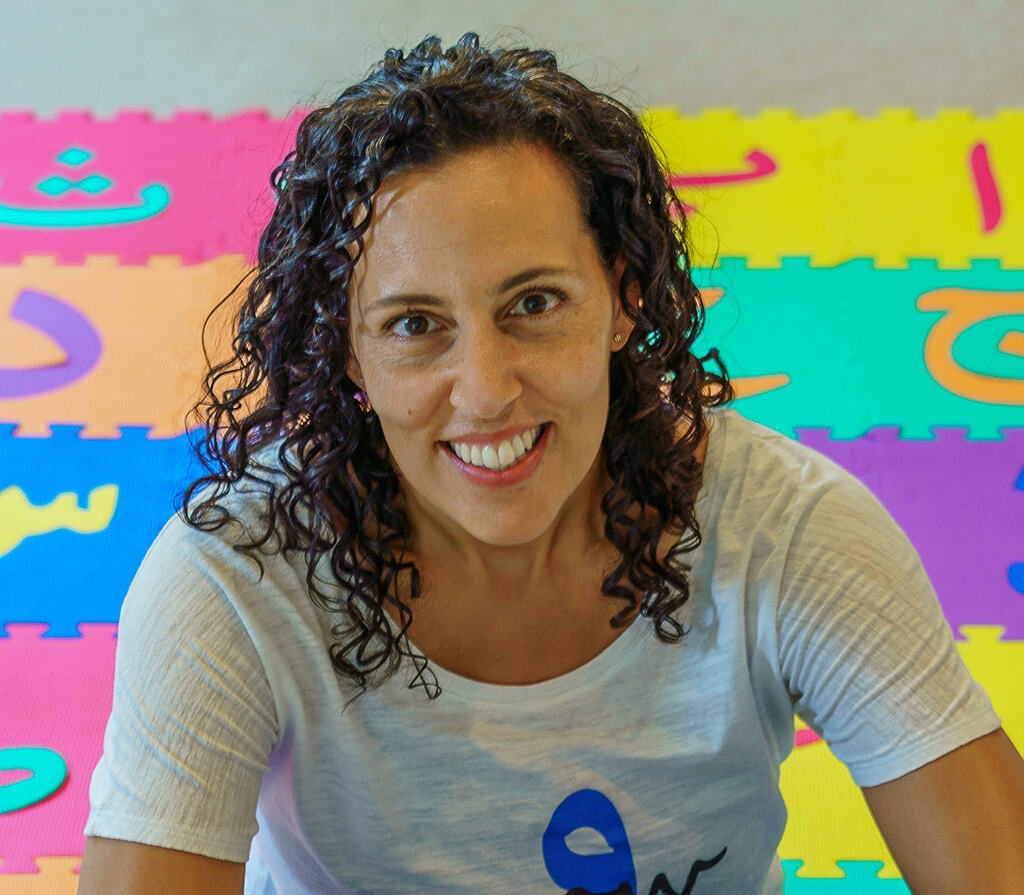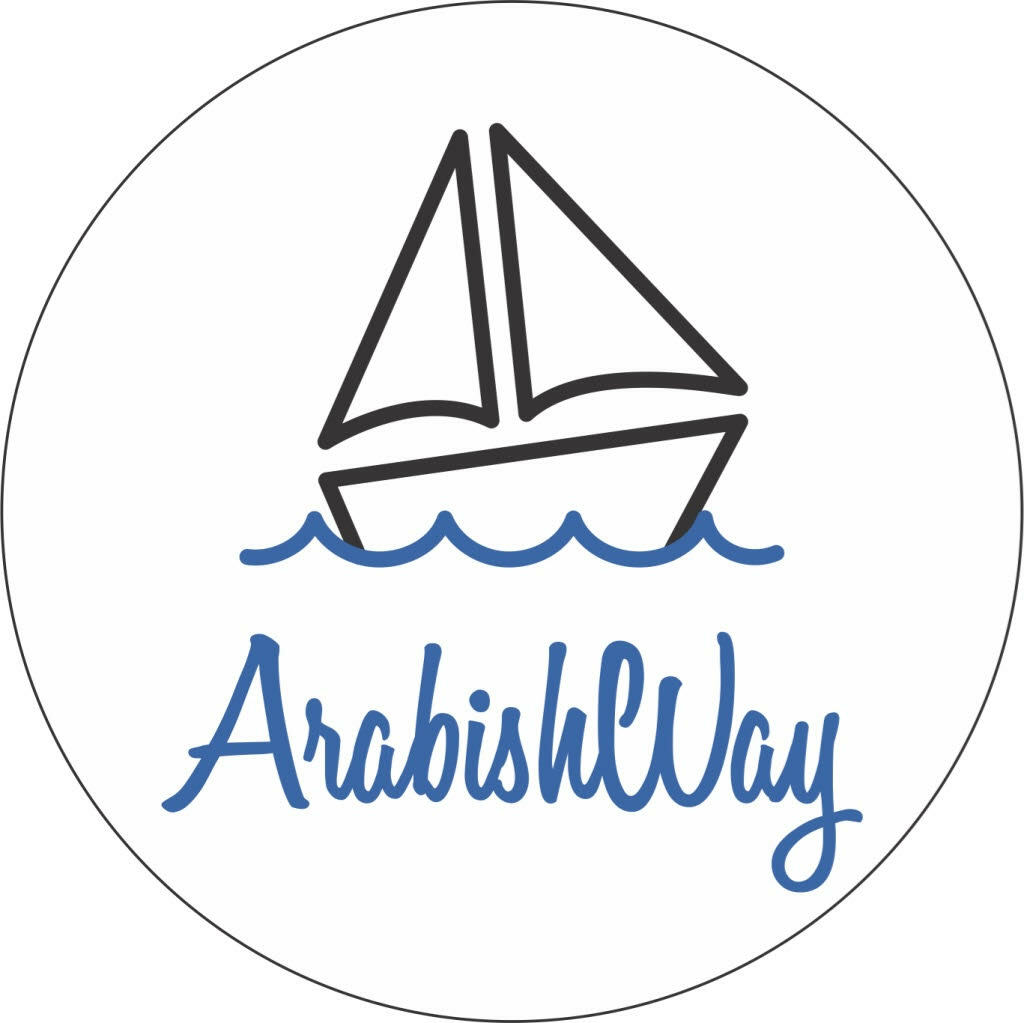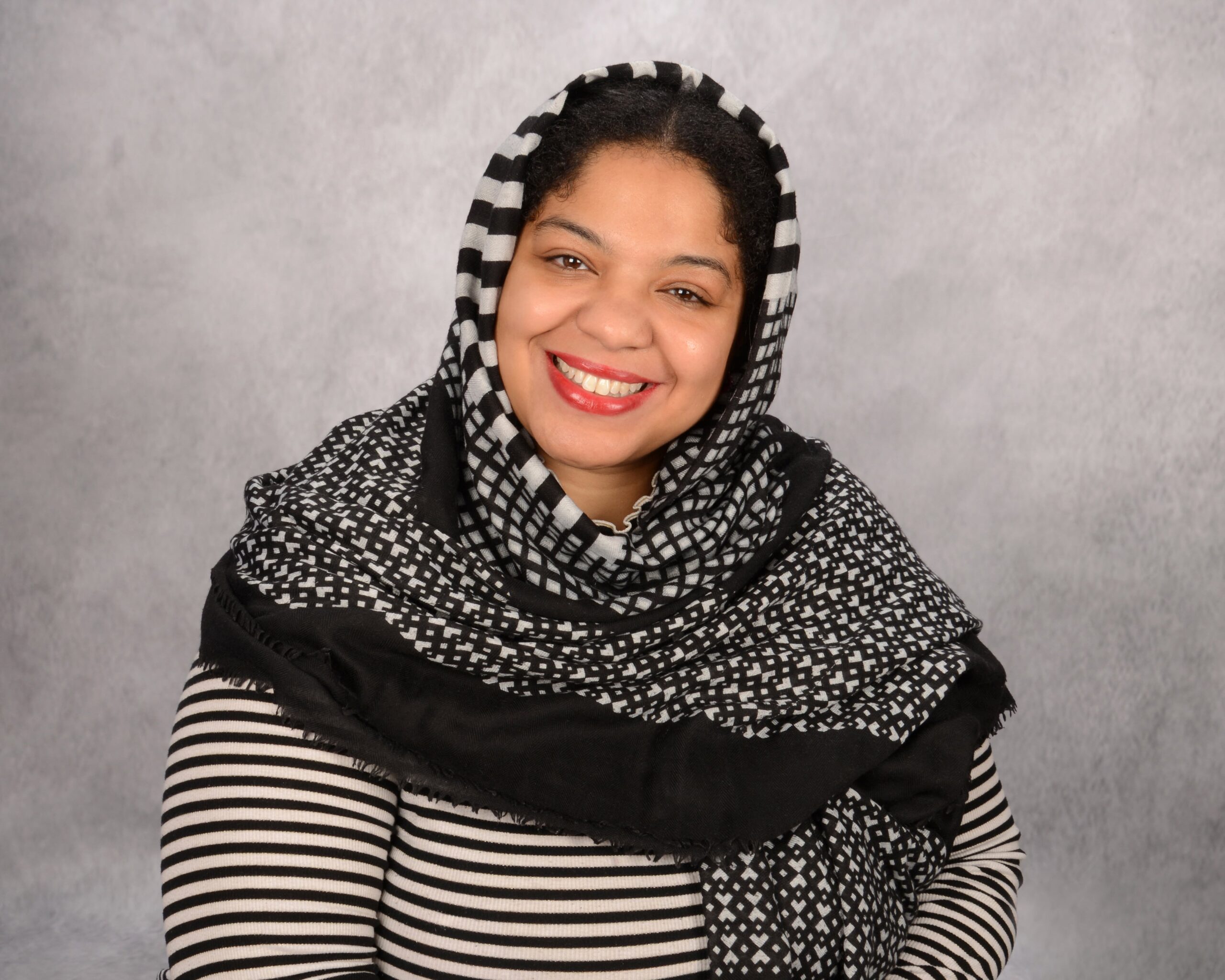Part one interview: ArabishWay and GlishArabic!
الجزء الأول من لقاء أرابشواي و جلشعربي
Here is the exciting part 1 interview between the founders of ArabishWay and GlishArabic, Laila Taji and Amel Sami ! Read about the importance of Arabic to them, how they developed Arabic learning and how they are reforming Arabic learning for children who predominantly live in English speaking countries!

Laila Taji – Founder ArabishWay
1- Tell us about yourselves
Laila: I was born in the UK. I have a handful of degrees that I am putting to such good use (eye roll) raising two girls, community organizing and running my business, ArabishWay. Both my parents are Palestinian. I was raised in the US. It was the 1980’s and I did what most 1st and 2nd generation kids did, I assimilated. We did not speak Arabic at home.
Amel: I am an only child who was born in Sudan but grew up in Southern Ireland. My parents always maintained the Arabic language in the home. I studied dentistry but then always found a love and creativity for making Arabic fun and lively. I got married in 2014 and now have three beautiful children.
Arabic was always an important part of my home where sentences were always repeated in Arabic. At first I remember struggling to find words to tell stories that happened in school, but somewhere along the way it got easier! I am an advocate for continuing to speak Arabic at home where possible and to encourage children to do so along with modern supports such as community schools, healthy technology and play.
2- What do you love about the Arabic language? What or who got you into this work?
Laila: It felt like people speaking Arabic had a way of playing with words that could make a whole table full of people burst with laughter. I loved that, but always felt that I was missing out because I only understood a few words. I wanted better for my kids so I did what I could to teach them what I knew. This was the early 2010’s and I really struggled to find Arabic books that were fun and engaging for toddlers. So I decided to make my own and created the board books Huss-see-Sawn and Jiddi ‘Ando H’mar.
Amel: That’s amazing! Creation of things missing is very important especially when it benefits children! I also believe that since we once grew up in the same position, having English first then Arabic, we understand unique difficulties that present in learning. That puts us in a strong position to create learning that is innovative, distinctive and inspiring to children with stronger English who are require Arabic language learning.
Laila: Absolutely! My grandfather first taught me to write the alphabet, my numbers and fruits and vegetables. He would write it out in Arabic but put the transliteration underneath. This helped me learn successfully and more quickly than I think I would have without it. A parenting note that has always stuck with me is that a child will pretend to not care or reject what you are trying to teach if they don’t understand or are frustrated. I keep this in mind with everything I do, to make learning fun and the answers accessible.
Amel: Arabic for me always meant connection with family and being a part of a life that was unknown to many other people. I loved how I could understand people back home while also being able to watching ‘musalsal’ or arabic series on TV when I was in Ireland!. Then as I grew older, I realised my Arabic was different from others. It wasn’t perfect but it made Arabic for me exceptional. Speaking of musalsal, do you have a favourite?
Laila: I, embarrassingly, just got hooked on al-Hayba!
Amel: Don’t be embarrassed! I think as females, mothers, creators we need to have good breaks and nurture our wellbeing! I am currently watching one that has Syrian actors called ‘alkhayin’ or cheater/traitor.


3- What do you hope to accomplish via this work?
Laila: I don’t know that I have a specific goal. I’m just thrilled anytime I hear that someone used my resources in a way that they and their kids enjoyed! If I got one family to learn one Arabic word, that to me is success.
Amel: I wish to make Arabic a language of fun, interest, excitement and most importantly I would say of use. It is important through GlishArabic that Arabic becomes useful for a child. That they can go about their day remembering words they can use or understand with their families and friends.
4- Favourite Arabic saying? Or joke?
Amel: My favourite Arabic saying is خبر بفلوس بكرة ببلاش
This means a piece of news worth lots of money today becomes free tomorrow. It resonates with me to be patient and calm. Kind of like good things come to those who wait but in different wording. You don’t need to spend your energy and important time trying to find out right now. Instead, waiting is free and can do wonders for your peace of mind!
Laila: My oldest was really into puns as a little girl. This is an Arabic/English joke we invented: Why did the elephant go to the doctor? Because he didn’t feel (فيل) well.
Amel: That’s brilliant! I was laughing for ages on hearing that one and love the English/Arabic integration there! Hey that reminds me! have you seen our GlishArabic jokes?! Here is a link to our Jellycopter one!. Jokes are one of the best and nicest way to connect with a child!
Laila: I just checked it out and that is super cute!


Amel Sami – Founder GlishArabic
6- What does ArabishWay have to offer to help those children learn/love Arabic?
Amel: I really enjoyed reading about the passion Laila has for Arabic in her website and how vividly connected she felt in wanting to explore different ways to teach children Arabic. ArabishWay is a lovely place to find resources and Lailas books are sweet, honest and entertaining for children. The wonderful thing is the ability of the books to bridge English with Arabic. A lot of the stories are familiar from the child’s English bookshelf, so the work of understanding them is significantly decreased.
5- What do you think are the benefits to the new generation of children in learning the Arabic language ?
Laila: I think learning the language of your family and people helps with identity and pride. My girls rolled their eyes while learning from me at home, but at school or outside the home, if Arabic shows up in a book or a picture or in a movie, they are so excited to show off their language skills.
Amel: I know the feeling! We have a lot of eye rolling at the moment but I am confident teaching children Arabic, especially when it may not be their super power, is an essential confidence booster! Children love to learn and Arabic knowledge only harnesses them with potential, empowerment and strong evolution.
7- What does GlishArabic have to offer to help those children learn/love Arabic?
Laila: GlishArabic starts by acknowledging that the childs strength is English and uses that to engage with children learning Arabic. Most importantly, GlishArabic uses play as a tool for learning! The games from GlishArabic are designed to be interactive and joyful, expanding on sound and spelling recognition from English, all the while building the child’s vocabulary in a subtle manner with plenty of fun animations along the way! Watch out for the upcoming launch of GlishArabic early 2024 in the Apple and Google stores! I am so excited to share this resource with ArabishWay followers.
The ArabishWay and GlishArabic interview continues in part 2 so stay tuned!!!!
ستستمر مقابلة أرابش واي و جلشعربي فالجزء الثاني لذا ترقبوا





